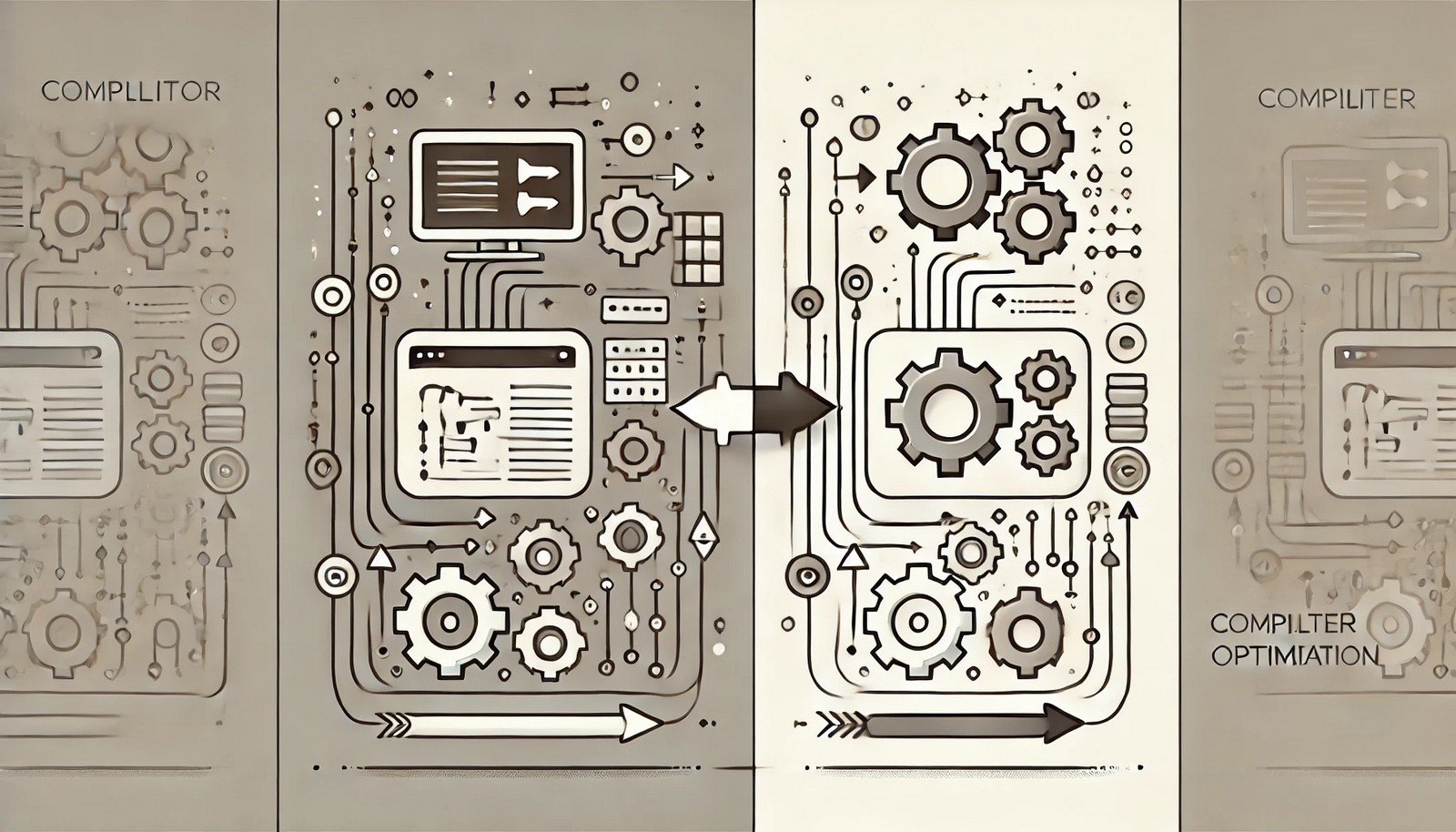Compiler Optimization
 (Representational Image | Source: Dall-E)
(Representational Image | Source: Dall-E)
Quick Navigation:
- Compiler Optimization Definition
- Compiler Optimization Explained Easy
- Compiler Optimization Origin
- Compiler Optimization Etymology
- Compiler Optimization Usage Trends
- Compiler Optimization Usage
- Compiler Optimization Examples in Context
- Compiler Optimization FAQ
- Compiler Optimization Related Words
Compiler Optimization Definition
Compiler optimization refers to a set of techniques and processes applied during the compilation of a program to improve its performance and efficiency. These optimizations may focus on reducing execution time, memory usage, or other resource constraints. Common optimization techniques include loop unrolling, inlining, and dead code elimination, ensuring the generated machine code is as effective as possible.
Compiler Optimization Explained Easy
Think of a compiler as a chef making a recipe. Compiler optimization is like finding shortcuts in cooking that save time or ingredients without changing the taste of the dish. For example, instead of peeling every single potato, you might use a better tool to peel faster.
Compiler Optimization Origin
The origin of compiler optimization can be traced back to the early days of computing when limited hardware resources necessitated efficient code. As programming languages evolved, the focus on optimizing compilers grew alongside to meet the increasing demand for high-performance applications.
Compiler Optimization Etymology
The term "compiler optimization" derives from "compile," meaning to convert source code into executable code, and "optimization," meaning making something as effective as possible.
Compiler Optimization Usage Trends
Compiler optimization has seen a steady rise in importance, especially with the growth of complex software applications. In areas like gaming, scientific computing, and mobile development, optimized code ensures smooth user experiences and efficient hardware utilization.
Compiler Optimization Usage
- Formal/Technical Tagging:
- Code Efficiency
- Performance Tuning
- Software Engineering - Typical Collocations:
- "compiler optimization techniques"
- "optimize the code"
- "compiler pass optimization"
- "optimized assembly output"
Compiler Optimization Examples in Context
- An optimized compiler translates a loop in C++ to run 20% faster on a given CPU.
- Dead code elimination removes unused functions, reducing program size.
- Inline functions during optimization help eliminate function call overhead.
Compiler Optimization FAQ
- What is compiler optimization?
It’s a process to make compiled code run faster or use fewer resources. - Why is optimization important?
It improves software efficiency and user experience. - What are common optimization techniques?
Loop unrolling, inlining, and constant folding. - Does compiler optimization affect debugging?
Yes, aggressive optimizations can make debugging more challenging. - Is optimization specific to a language?
No, but it may vary in implementation for different languages. - Can all code be optimized?
Most code can be optimized, but some may have negligible improvements. - What is loop unrolling?
It’s a technique to reduce loop overhead by executing multiple iterations in a single step. - Do optimizations guarantee better performance?
Not always; some optimizations may be counterproductive on certain hardware. - What is dead code elimination?
It removes parts of the code that don’t affect the program's outcome. - Are there risks in compiler optimization?
Yes, overly aggressive optimizations might introduce bugs or make code harder to maintain.
Compiler Optimization Related Words
- Categories/Topics:
- Programming
- Computer Science
- System Design
Did you know?
The idea of compiler optimization dates back to the early 1960s, with pioneers like John Backus, who developed methods to make FORTRAN more efficient. Some techniques used then are still foundational in modern compilers.
PicDictionary.com is an online dictionary in pictures. If you have questions or suggestions, please reach out to us on WhatsApp or Twitter.Authors | Arjun Vishnu | @ArjunAndVishnu

I am Vishnu. I like AI, Linux, Single Board Computers, and Cloud Computing. I create the web & video content, and I also write for popular websites.
My younger brother, Arjun handles image & video editing. Together, we run a YouTube Channel that's focused on reviewing gadgets and explaining technology.



Comments powered by CComment